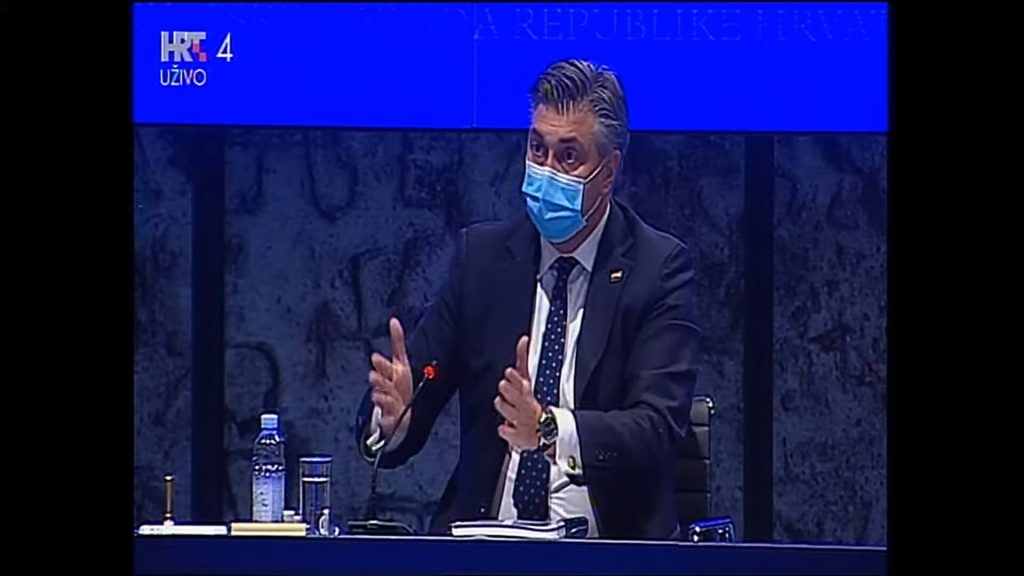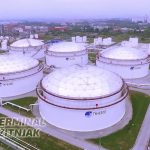“I don’t know why the proposal to separate social care from the ‘mega-ministry’ is being made,” Plenković told reporters in the parliament.
He recalled that in 2013, during the term of the Zoran Milanović government, a case similar to the last one happened in Slavonski Brod, and at the time there was a separate ministry of social care.
When they lack arguments, people make banal, nonsensical statements, Plenković said, adding that Labour, Pension System, Family and Social Policy Minister Josip Aladrović was capable of heading the ministry because the ministry had its services, directors, state secretaries and social welfare centres across Croatia.
“In this specific case with a fatal outcome, the assessment and decision to return the little girl to her biological family was a bad one and for that kind of professional mistake responsibility lies with those who make it,” he said.
Plenković went on to say that since the case of an incident on Pag Island in 2019, when a father threw his four underage children from the first-storey balcony of his house, a lot had changed in the social care system.
“During the terms of ministers (Nada) Murganić, (Vesna) Bedeković and now Minister Aladrović, we have worked to strengthen the system of social care. We have worked to raise social workers’ wages as well as standards of physical and technical security, so now welfare centres have guards,” he said.
The government has increased outlays for social care and allowances and it expects the system to function better and to the benefit of children, he said.
Unfortunately, there are problems, there are dysfunctional families, horrible things are done by biological parents but they will all answer for their actions in a legal procedure, Plenković said, adding that he was appalled and extremely saddened by the latest case.
Speaking of illogical provisions in the foster care law, adopted by his government, Plenković said that every legal solution could be improved.
It is important to speed up foster care procedures and that all children who live in environments that are not appropriate and not safe find a safe place to live. We will improve the law. There is always something to improve, he said.
AstraZeneca vaccine
Plenković also talked about a decision the European Medicines Agency is expected to make on the age groups for which the AstraZeneca COVID-19 vaccine is acceptable.
He said he would meet today with Health Minister Vili Beroš and the directors of the Croatian Institute of Public Health and the Croatian agency for medicinal products to discuss the information they had, and that later today Beroš would participate in a video conference of EU health ministers.
“The most important thing is that the member states’ ministers of health have a consolidated position, whatever the EMA’s recommendation, and that there are no different practices. Different practices undermine the reputation of a vaccine, whatever its quality, which has happened with AstraZeneca from the start, unfortunately.”
Plenković said the confusion about that vaccine had resulted in some people refusing it, which was not pleasant either for the company or anyone involved in vaccination.
He also responded to criticism that he had promised that a majority of the Croatian population would be vaccinated by spring yet had now postponed this until July.
He said AstraZeneca had promised to deliver 120 million doses to the EU in the first quarter but delivered 30 million. Croatia was to have received 1.7 million doses by 31 March and vaccinated more than 800,000 people, he added.
Plenković said 600,000 doses had been delivered and that 2.6 million would be by 30 June, adding that the government was working on having other vaccines available in case of more problems with AstraZeneca.
“Had we ordered 100% from each company and paid for 25 million doses, then all questions would have been – whose money are we spending and why are we buying three or four times as many doses as we need?”
He said an unforeseen thing had happened, not with a no-name company but one of the largest pharmaceutical companies in the world.
Central bank governor, fighter jets, former JANAF CEO’s arrest
Asked if he had known about central bank governor Boris Vujčić’s correspondence with representatives of the Knighthead fund concerning the Agrokor conglomerate, Plenković said the question should be put to Vujčić.
Speaking of the procurement of fighter jets, he said consultations were under way and that a decision would be made in time. All offers are valid and we’ll take some more time to decide, he added.
Asked to comment on the new arrest of Dragan Kovačević, former CEO of the JANAF oil pipeline operator, Plenković said everything about it should be said by the USKOK anti-corruption office and the State Attorney’s Office.
For more about politics in Croatia, follow TCN’s dedicated page.











